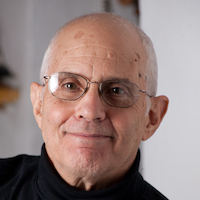Happy Independence Days.
In India, the full moon day in the lunar calendar’s month of Ashadh (typically July here) is celebrated as Guru Purnima. It’s when devotees express gratitude to their own gurus and, more broadly, to the very concept of the guru as one who dispels darkness and leads spiritual aspirants from the shadows of ignorance to the light of awakened wisdom.
Thanks to immigration and the global popularity of yogic practices and Indian philosophies, Guru Purnima is no longer celebrated only in its birthplace. This year, on the night of July 3rd, Americans of all kinds mark the occasion—not just those who identify as Hindu and are disciples of specific gurus, but also a large number who’ve simply been impacted by one or more gurus, or by the ideas and practices that have come to us from India through texts and teachers over the last 200 years.
That this year’s Guru Purnima comes the day before Independence Day strikes me as symbolism worth reflecting upon.
Both India and America have always stood for something special in the world’s eyes, and the two civilizations have enriched one another immeasurably with their gifts. Hindu texts inspired and informed Ralph Waldo Emerson and Henry David Thoreau, and the latter inspired and informed Mohandas Gandhi, who in turn inspired and informed Martin Luther King. Such trans-global volleys have been recapitulated at an ever-increasing pace in the lives of millions of Indians and Americans.
Both Independence Day and Guru Purnima celebrate liberation. America produced courageous geniuses who declared their political freedom on a distant July 4th and later codified and modeled it for the world; India produced sages and seers who, millennia ago, discovered, declared and codified the secrets of inner freedom.
Freedom from external subjugation, oppression and domination; freedom from internal limitations, conditioning and restraints.
Freedom from suffering imposed by tyranny; freedom from suffering imposed by ignorance.
Freedom of becoming; freedom of being.
Freedom of conscience; freedom of consciousness.
In both cases, the vision of liberation is in the context of unity.
E pluribus unum it says on the seal of the United States: out of many, one. Tat Tvam Asi, it says in the Upanishads: Thou art That. The union of many ethnicities, religions and beliefs; the union of individual and universal, matter and spirit, earthly and divine.
The freedom and unity that July 3rd and 4th commemorate are not merely ideals; they are states of being. They are natural conditions, inherent in human nature, but that have to be reached for, worked at and constantly perfected.
Guru Purnima celebrates the teachers whose lives and methods remind us of what human beings are and can be.
Independence Day celebrates the founders whose meticulous document reminds us of what we are and can be as a collective.
Both guide us toward the attainment of higher states, inner and outer.
Yeah, we all know there are imperfect gurus and American democracy is seriously flawed, but that shouldn’t stop us from celebrating what each of them stand for.
This year’s juxtaposition of Guru Purnima and Independence Day is irresistible in another way as well. In the letters they exchanged in their later years, John Adams and Thomas Jefferson wrote of many things, including the books on Hinduism that were arriving for the first time in the country they founded.
As schoolchildren everywhere learn, the two ex-presidents both died on July 4, 1826, exactly 50 years after the signing of their world-changing document. Exactly 76 years later (76 itself having symbolic resonance), a founding guru passed away. Swami Vivekananda, the first of India’s holy men and women to make a mark in the U.S., died in Calcutta on July 4, 1902.
The founder of the venerable Vedanta Society, he was inspired by America’s brand of freedom, and he returned the favor by setting the template for the subsequent gurus who brought India’s brand of freedom to us. He even wrote a poem called “To the Fourth of July.” Its first line could be recited in the context of Guru Purnima as well: “Behold, the dark clouds melt away.”
Editor: Lynn Hasselberger


 Share on bsky
Share on bsky




Read 4 comments and reply